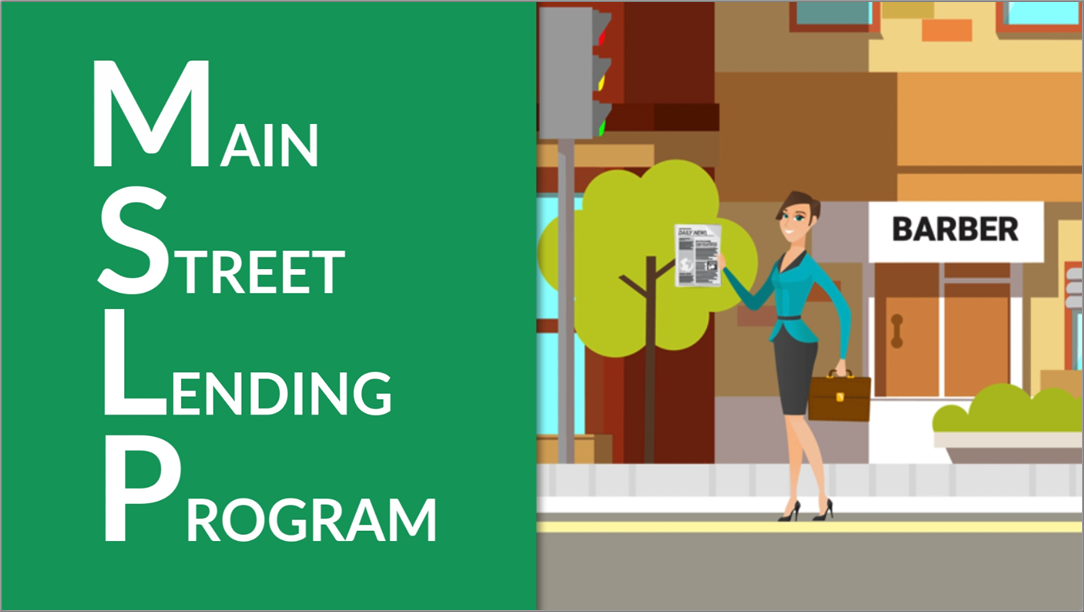Business Owner Alert: Main Street Lending Program Offers Covid Aid
Published Tuesday, July 7, 2020, 7:09 p.m. EST
Business owners who were unable to qualify for federal Covid-crisis emergency assistance from the Payment Protection Program (PPP) need to know about the Main Street Lending Program (MSLP).
Enabled by the CARES Act on March 27, 2020, MSLP is administered by the Federal Reserve Board, which is not a normal function of the Fed. The program makes available $600 billion in federal aid to small businesses demonstrating sound financials before the Covid outbreak.
Like PPP, MSLP aid takes the form of loans with favorable terms. A very important difference from the PPP loan program, however, is that MSLP loans are not forgivable.
MSLP is intended to ease credit conditions for small business suffering from the Covid crisis. Some businesses may find its terms advantageous.
The minimum loan size is $250,000 and the term of each loan is five years. Significantly, no principal repayment is required for two years.
Ninety-five percent of the loan principal is advanced by the government. Your lender provides just 5%, but receives a 1% annual fee on the full loan amount.
Despite offering an interest- free loan for one year and requiring nothing to be repaid for two years, requiring 70% of the loan be repaid at maturity known as a balloon payment carries a risk that must be considered in evaluating an MSLP loan. Other borrowing options should be considered in lieu of the MSLP loan program.
The Main Street Lending Program is new and it was launched amid the Covid crisis. New terms governing MSLP loans were released on June 6, 2020, and are subject to change by the Federal Reserve Board at any time. The Fed released a lengthy FAQ about the program on June 26.
Proper evaluation of taking an MSLP loan requires an understanding of your personal financial and tax situation, your business' financial condition and other factors beyond the scope of this financial planning alert.
Please contact us with questions.
This article was written by a professional financial journalist for Preferred NY Financial Group,LLC and is not intended as legal or investment advice.
An individual retirement account (IRA) allows individuals to direct pretax incom, up to specific annual limits, toward retirements that can grow tax-deferred (no capital gains or dividend income is taxed). Individual taxpayers are allowed to contribute 100% of compensation up to a specified maximum dollar amount to their Tranditional IRA. Contributions to the Tranditional IRA may be tax-deductible depending on the taxpayer's income, tax-filling status and other factors. Taxed must be paid upon withdrawal of any deducted contributions plus earnings and on the earnings from your non-deducted contributions. Prior to age 59%, distributions may be taken for certain reasons without incurring a 10 percent penalty on earnings. None of the information in this document should be considered tax or legal advice. Please consult with your legal or tax advisor for more information concerning your individual situation.
Contributions to a Roth IRA are not tax deductible and these is no mandatory distribution age. All earnings and principal are tax free if rules and regulations are followed. Eligibility for a Roth account depends on income. Principal contributions can be withdrawn any time without penalty (subject to some minimal conditions).
© 2024 Advisor Products Inc. All Rights Reserved.

